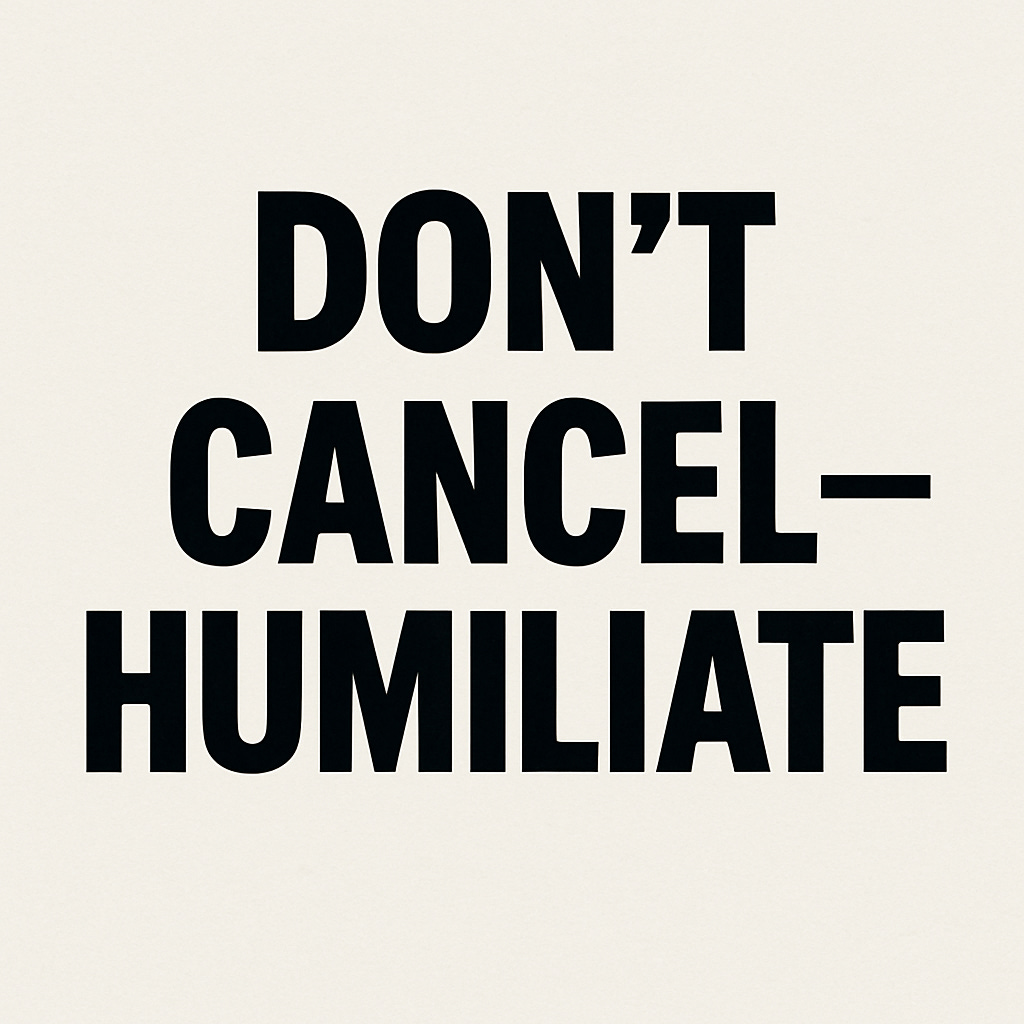Here’s why we should humiliate, not cancel, those who publicly reveled in Charlie Kirk’s murder
When you call for someone to be fired, banned, or silenced, you’re engaging in cancellation. The effect is that their voice is erased from the conversation. At first glance that may feel like justice, but in reality it’s a mistake. Once they’re gone, we lose the opportunity to hear their embarrassing views in full — the very things that, left exposed, would have corroded their reputation on their own.
Humiliation takes the opposite approach. Instead of silencing, it engages. By pointing out contradictions, absurdities, and hypocrisies, we allow their voice to remain in the open, but stripped of dignity. They continue to speak, and the public sees them undone in real time. Their reputation crumbles naturally, and others learn by watching their views collapse under the weight of ridicule.
And here’s an important distinction: calling for someone’s firing is not the same as humiliating them until their employer has no choice but to cut ties. The first is censorship; the second is the organic consequence of their own exposed words.
Cancellation censors. Humiliation discredits.
Cancellation = forcing punishment beyond the natural reputational hit of speech.
Don't confuse cancellation (BAD!) with humiliation (GOOD!). Moment 413


